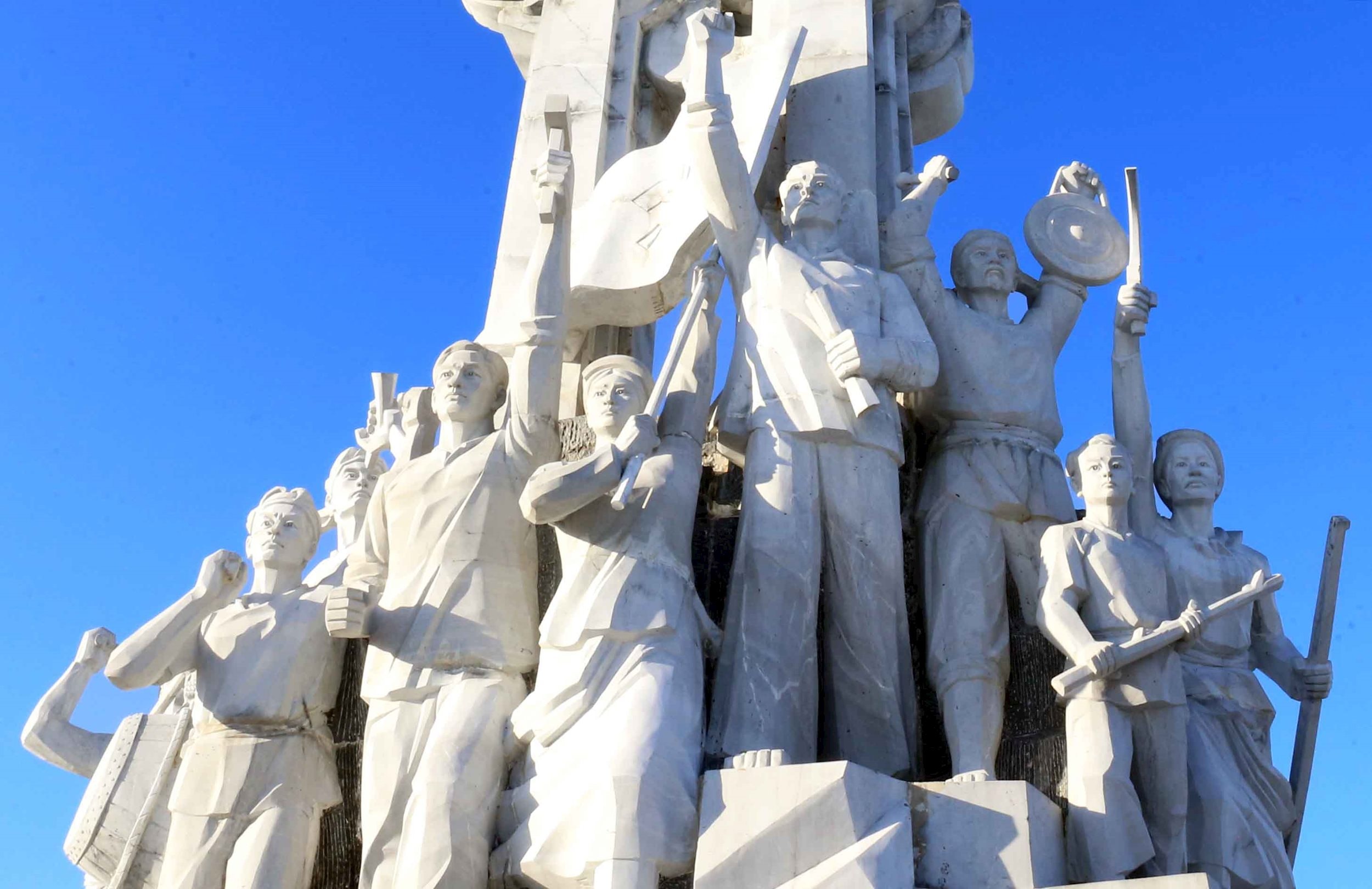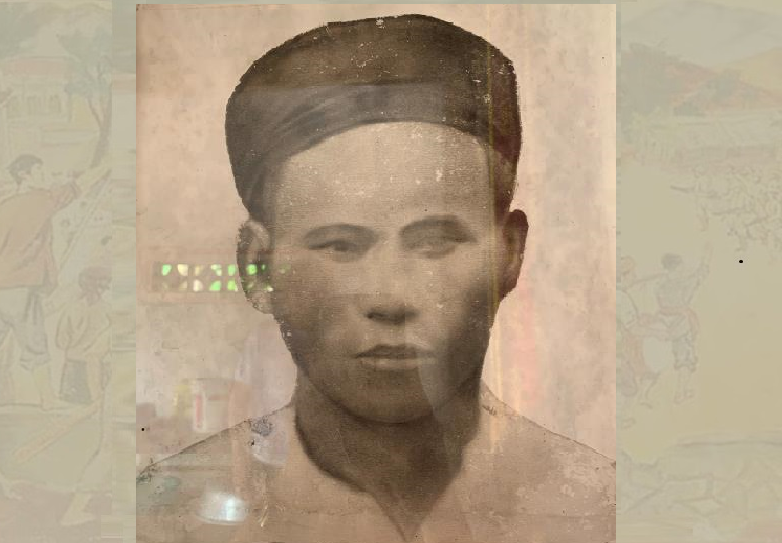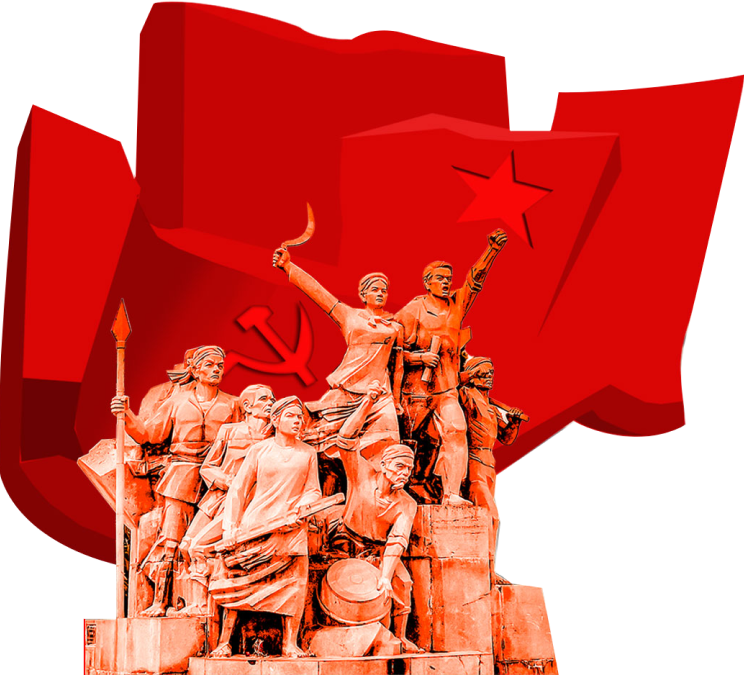Revolutionary spirit and courage of comrade Tran Chau Boi in the Nghe Tinh Soviet
With his intelligence, comrade Tran Chau Boi became a local Chinese teacher, his house became one of the meeting places for progressive patriotic youth in the area. He made many contributions to the revolution.
Da Son is a land of culture, with a rich history and revolution. When the French colonialists invaded our country, like many other rural areas, the people of But Da in the past and Da Son today had to endure the double oppression. Not willing to accept the life of slavery, the people here followed the tradition of their ancestors and stood up to demand food, clothing, and freedom at the call of patriotic scholars and writers.

Comrade Tran Chau Boi (alias Toan) was born on February 15, 1887 in a peasant family in Bot Da village, Thuan Trung commune, Anh Son district (now hamlet 7, Da Son commune, Do Luong district), Nghe An province. Despite difficult circumstances, his family created conditions for him to study Chinese and Vietnamese classes at the village school.
Having early access to books, newspapers, and progressive ideas, the young man Tran Chau Boi gradually showed himself to be a strong-willed person, eager to learn and passionate about the poems and literature full of revolutionary spirit, filled with patriotism of his predecessors. Naturally intelligent, later, comrade Tran Chau Boi became a local Chinese teacher, and his house became one of the meeting places for progressive patriotic youth in the area.
After the Communist Party of Vietnam was born (February 3, 1930), under the leadership of the Nghe An Provincial Party Committee's representative, the Anh Son Provisional Party Committee was established at the end of March 1930 with comrade Tran Du as Secretary. The Party Committee met and agreed on the policy of prioritizing the work of building and developing grassroots Party organizations. Party Committee members were assigned to villages and hamlets to propagate and enlighten the masses. But Da village in particular and Thuan Trung commune in general in the years 1930 - 1931 belonged to Anh Son district, so the people's struggle movement here was directly led by Anh Son district committee.
At the end of March 1930, at the Tran Chau family temple, under the chairmanship of comrade Phan Thai At, the But Da Party Cell was established with comrade Nguyen Canh Con as Secretary. Comrade Tran Chau Boi and a number of patriotic youths were admitted to the cell during this time. After a while, comrade Tran Chau Boi was elected by the cell to hold the position of Secretary to replace comrade Nguyen Canh Con, who was transferred by the organization to take on a new task.

Under the direction of the Party Committee, Tran Chau Boi and his comrades in the But Da Party Cell stepped up propaganda work, consolidated the Party organization, and recruited enthusiastic and active people in the struggle movements into the Party. Thanks to the close propaganda and mobilization work of comrade Tran Chau Boi and the But Da Party Cell, local mass organizations such as the Red Farmers' Association, Red Self-Defense, Youth, Women, etc. were successively established, attracting many members to participate.
Immediately after receiving the Anh Son Palace Committee's policy on organizing a large-scale demonstration across the palace to respond to the September 1, 1930 struggle of the Thanh Chuong people, comrades in the But Da Party Cell, such as: Tran Van Thang, Pham Dinh Thi, Tran Van Doi... held many meetings to discuss plans for coordinating the struggle at comrade Tran Chau Boi's house.
On the morning of September 8, 1930, after the gong signal, comrade Tran Chau Boi and the party members in the cell led the villagers to gather and march to the assembly point at Truong Con Doi (in But Da area), coordinating with the villages of Thuan Trung and Bach Ha communes to protest. After listening to the party members' speeches, the protest group rushed to the government office. As they walked, the group chanted slogans of struggle, demanding that the colonial and feudal authorities abolish market tax, ferry tax, reduce land tax, poll tax...
Frightened by the strength of the people's struggle, the enemy sent planes from Vinh to bomb the demonstration, killing 7 people and injuring 30. Faced with that situation, comrade Tran Chau Boi and other party members led the demonstrations from each village to temporarily retreat.
Then, on September 9, 1930, September 10, 1930 and September 23, 1930, comrade Tran Chau Boi led the people of But Da and Phuong Ky villages to coordinate with the people of the villages of Thuan Trung and Bach Ha communes to carry out demonstrations against the terrorist policy of the colonial puppet government, and held a memorial rally for those who died in the demonstration on September 8, 1930.
Faced with the strong development of the struggle movement, the French colonialists and their puppet government sent their agents and secret police to But Da to surround, hunt down and detain comrade Tran Chau Boi at Kim Nhan prison (present-day Anh Son area). For 8 months, although the enemy used many different methods, from torture to enticement, comrade Tran Chau Boi still did not reveal a single word.
In mid-1931, after being released from prison, comrade Tran Chau Boi continued to teach Chinese characters, waiting for the opportunity to establish contact with the Party organization. After a long period of hiding in other areas, he returned to his hometown to continue teaching Chinese characters to children in the village, secretly working to foster a Party organization, and finding ways to develop Party members. After only a short time, he organized and recruited a number of new Party members, including comrade Nguyen Duy Cuong, from Bach Ngoc, Lam Son commune today.
On August 15, 1945, after the Japanese Government surrendered to the Allies, the Nghe Tinh Inter-Provincial Uprising Committee ordered the districts and prefectures to immediately arrange the seizure of power. On August 23, 1945, under the direction of comrades in the Anh Son Uprising Committee, comrade Tran Chau Boi and a large number of people from But Da and Phuong Ky villages, holding red flags with yellow stars, spears, and sticks as weapons, the orderly formation marched to the front of the government office along with a large number of people from the communes to participate in the seizure of power in Anh Son prefecture.
Then, on August 25, 1945, comrade Tran Chau Boi and the people of But Da and Phuong Ky villages fought to gain local power. Immediately after, the comrades announced the decision to establish the Provisional Revolutionary Committee of But Da village. Comrade Tran Chau Boi was elected by the people to hold the position of Chairman of the Committee. After the Provisional Revolutionary Committee of each village was announced, in the face of the people's struggle, the local authorities in But Da and Phuong Ky villages handed over all documents, seals, and books to the provisional revolutionary government in the presence of a large number of people.
On November 4, 1947, comrade Tran Chau Boi sacrificed his life while on duty. The life and revolutionary career of comrade Tran Chau Boi is a great example of the steadfast will of a communist, always upholding the fighting spirit and courage for the people and the country.
In recognition of his great contributions to the Da Son revolutionary movement in particular and Do Luong district in general, comrade Tran Chau Boi was posthumously awarded the Certificate of National Merit by the Government of the Socialist Republic of Vietnam according to Decision No. 10/QD-TTg dated January 3, 2006.
-----
References:
History of Do Luong District Party Committee 1930 - 1963, Nghe An Publishing House 2005.
History of the Party Committee and people of Da Son commune 1930 - 2005, Culture - Information Publishing House.
Story and documents of Mr. Tran Kim Anh, grandson of comrade Tran Chau Boi.



